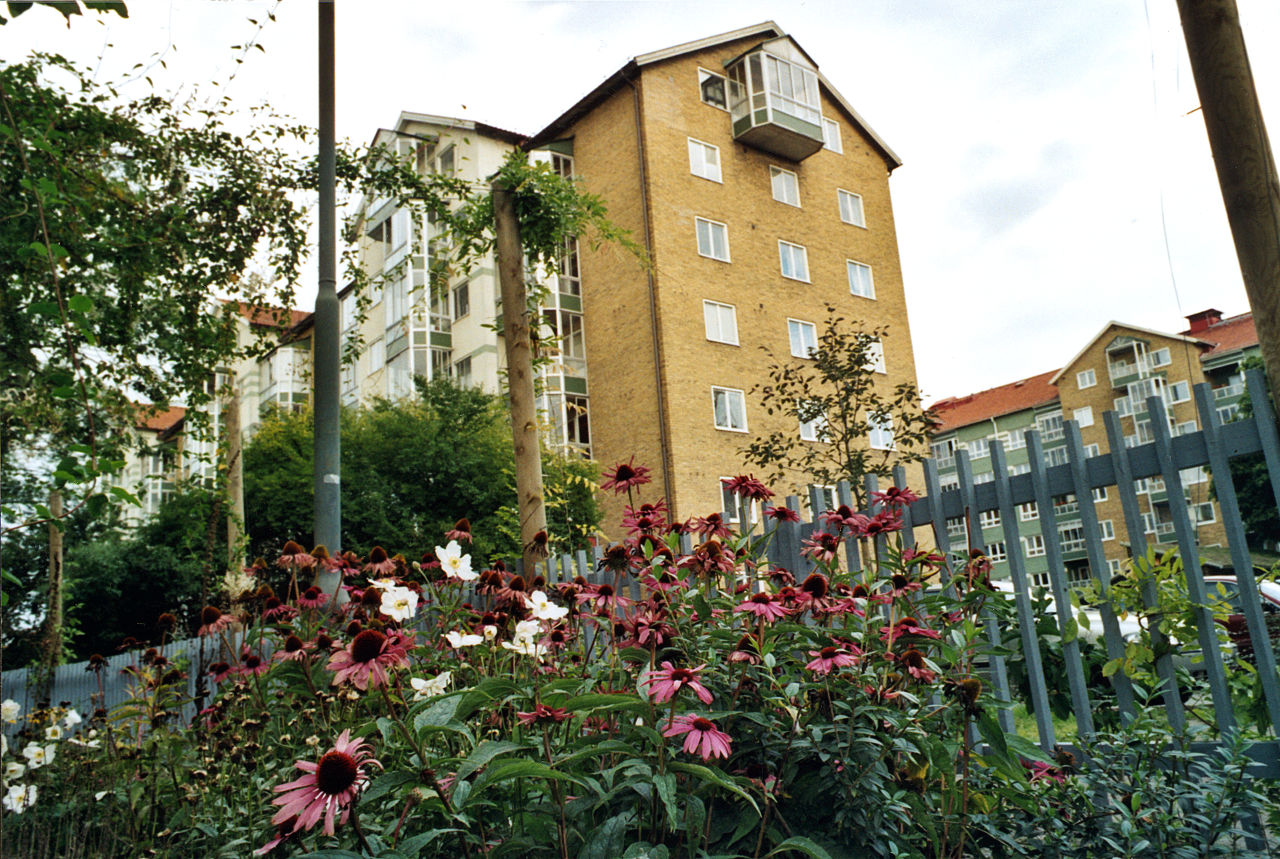Public Involvement Crucial to Swedish Community
chinagate.cn by Victoria Cole, July 10, 2015 Adjust font size:
The regeneration of Augustenborg in Malmö, Sweden demonstrated effective solutions to innovative urban renewal and has been described as being "one of the farthest reaching programs of ecological development in an existing neighborhood in Europe." The highly successful program, as such, has attracted world-wide interest.
Under Sweden's new post-war social housing policy, the Malmö City Housing Company Ltd. completed the 4-year construction of Augustenborg, consisting of 1,800 apartments in 1952. At the time, it was Malmö's first energy-independent housing area, sustained by a local coal-fired heating system. The Ekostaden Augustenborg ("Eco Neighborhood") project began in 1998 and now incorporates measures that empower green lifestyles, innovation and public involvement.

One of Ekostaden Augustenborg's residential areas adjacent to a community flower garden [Photo credits: Google Images]
Effective steering of heat and hot water systems, new ventilation systems, additional insulation, movement detectors and low energy electrical fittings all save a significant amount of energy for the neighborhood. The property also utilizes solar and small-scale wind power. Residents also only pay for the heat and hot water they actually use instead of having the bills included in their rent.
Almost 90% of rainwater is filtered into the new sustainable urban drainage system, solving the area's many pre-initiative flood and water-related problems. The world’s first electric road train is also operating in Augustenborg, and safe cycling and walking are actively promoted through the accommodation of local traffic systems.
Ekostaden Augustenborg manages 13 on-site recycling houses, collectively taking in over 80% of household waste. Cardboard, plastic, glass, metal, batteries and organic waste are all composted on-site in just four weeks. Residents can also deposit and take various, unwanted items using a community "exchange room" and maintain private and community gardens facilitated in on-site allotments and green roofs. Since the neighborhood’s transformation, total green space has increased 50%.
A diverse community occupies Ekostaden Augustenborg as over half of its residents are non-Swedish. People living in the area are engaged in social clubs, sporting activities, cultural events, classes and regular community workshops. The area also supports many jobs as Ekostaden Augustenborg facilitates a primary school and several privately-owned local shops.
Local residents, employees and school children are also integral to Augustenborg, taking leading roles in brainstorming, designing and implementing projects, like the resident-led "eco car pool" program, with a fleet of electric and ethanol cars that can be rented by local people and businesses. Evident social changes have also occurred since the initiative's launch. Unemployment has fallen from 30% to 6%, and participation in elections has increased from 54% to 79%.
Source: The Metropolis Association

